13 Household Rules That Could Help Maintain A Tidy Home
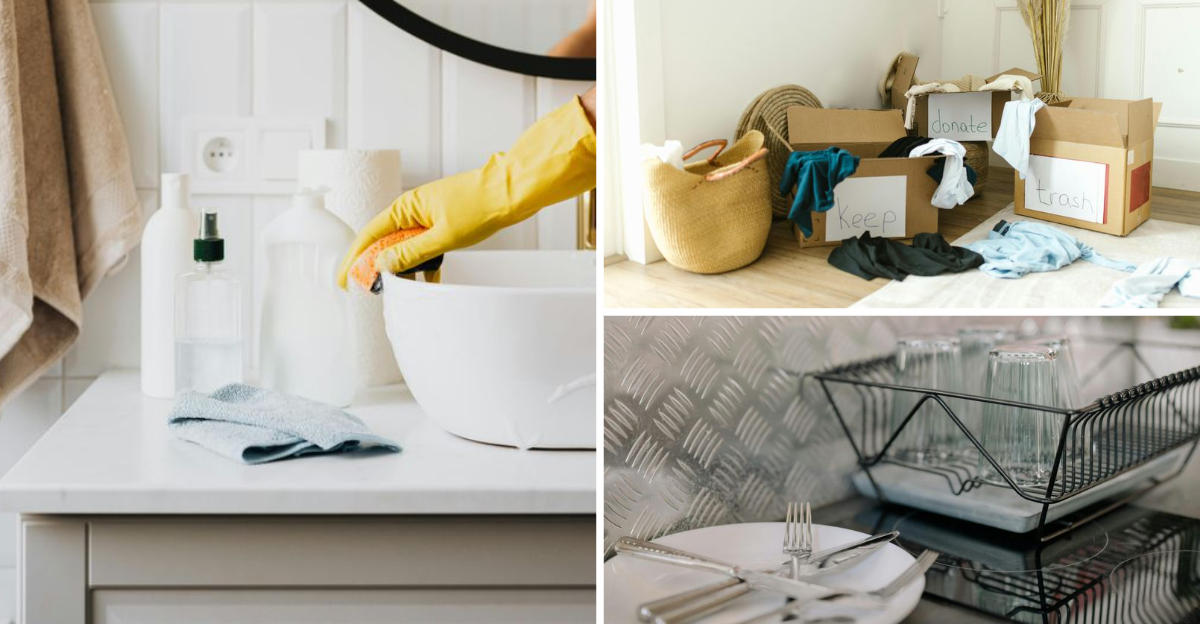
Keeping a tidy home doesn’t have to feel like climbing Mount Everest. With a few simple rules that everyone follows, you can transform chaos into calm and clutter into cleanliness.
These household guidelines aren’t about perfection they’re about creating habits that make tidiness part of your everyday life rather than a weekend marathon.
Ready to discover how small daily actions can lead to a consistently cleaner home? This advice is based on general principles for home organization, but individual preferences and lifestyles may affect how these tips are applied.
1. Make the Bed Daily
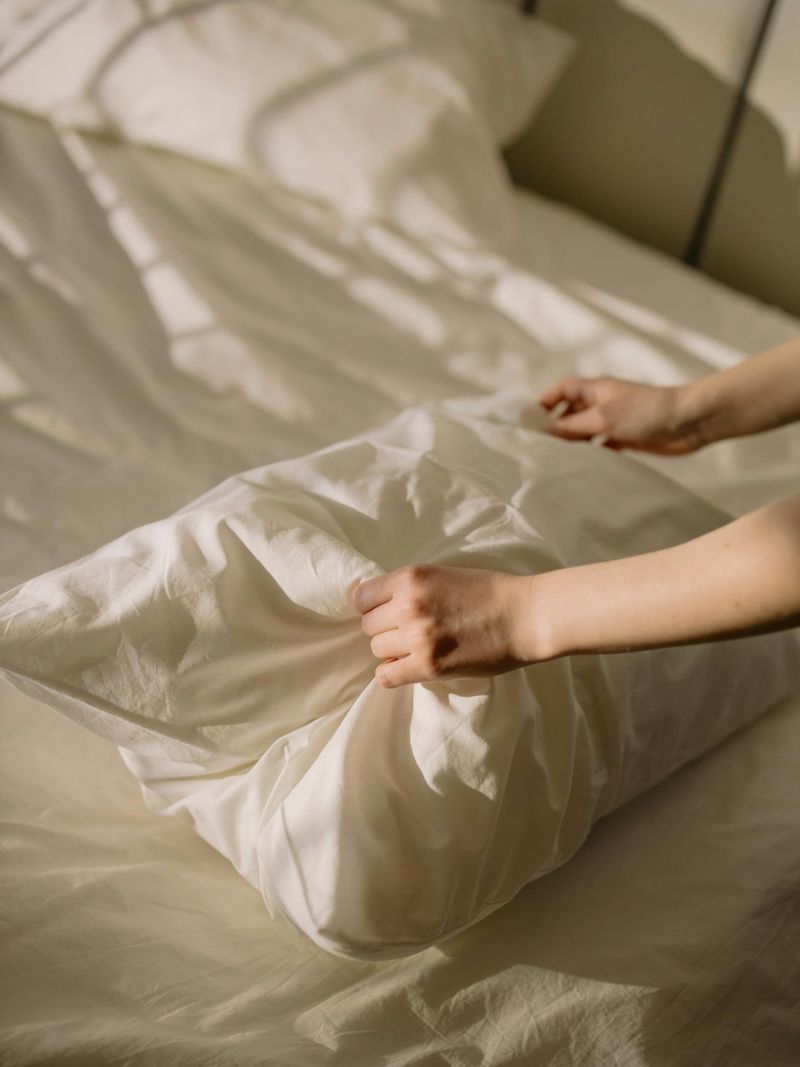
Starting your day by making your bed creates an instant win that sets a productive tone. This simple three-minute task transforms your bedroom from messy to orderly with minimal effort.
The benefits extend beyond appearance. A neatly made bed discourages you from tossing clothes or items on it throughout the day. Plus, there’s nothing quite like pulling back crisp sheets at bedtime after a long day.
Teach kids this habit early by making it fun maybe with a sticker chart for younger children or a quick competition for teens. Even a basic straightening of blankets and fluffing of pillows counts!
2. Do Laundry Regularly

Mountains of clothing create instant visual chaos and make finding clean clothes nearly impossible. Instead of marathon weekend washing sessions, consider smaller, more manageable loads throughout the week.
Designate specific days for different types of laundry perhaps Monday for darks, Wednesday for lights, and Friday for bedding. This prevents the overwhelming pile-up that leads many people to avoid laundry altogether.
The folding step matters just as much as washing! Develop a habit of folding and putting away clothes immediately after the dryer finishes. Even 15 minutes of folding while watching TV can maintain order and prevent the dreaded “clean laundry chair” where folded clothes sit for days.
3. Declutter Weekly
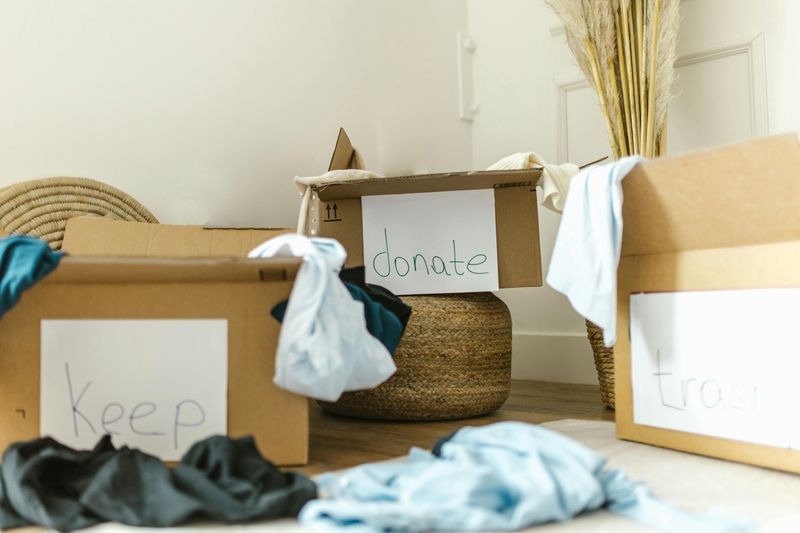
Stuff accumulates silently until suddenly every surface is covered with random items. Setting aside just 15 minutes weekly for targeted decluttering prevents this creeping chaos.
Focus on high-traffic areas first entryways, coffee tables, and kitchen counters tend to collect the most random items. Keep a donation box somewhere accessible for items you realize you no longer need during these quick sessions.
Many families make this a Sunday evening ritual before the new week begins. Put on some upbeat music, set a timer, and have everyone grab items that don’t belong in common areas. When the timer dings, everything should be returned to its proper home or designated for donation, creating a fresh start for Monday.
4. Put Items Back Immediately

“I’ll put it away later” might be the biggest lie we tell ourselves. This innocent procrastination creates most household clutter, as items left out tend to attract more displaced objects like magnets.
Adopt the “one-touch rule” handle items only once by putting them away immediately after use. This applies to everything from scissors after opening packages to clothes after trying them on.
Kids struggle with this concept naturally, but turning it into a game helps tremendously. The “beat the timer” challenge, where children race to return toys to their homes before a song ends, builds habits while making cleanup fun. For adults, pairing this habit with mindfulness helps take three extra seconds to consciously choose proper placement rather than convenient placement.
5. Sweep or Vacuum Often
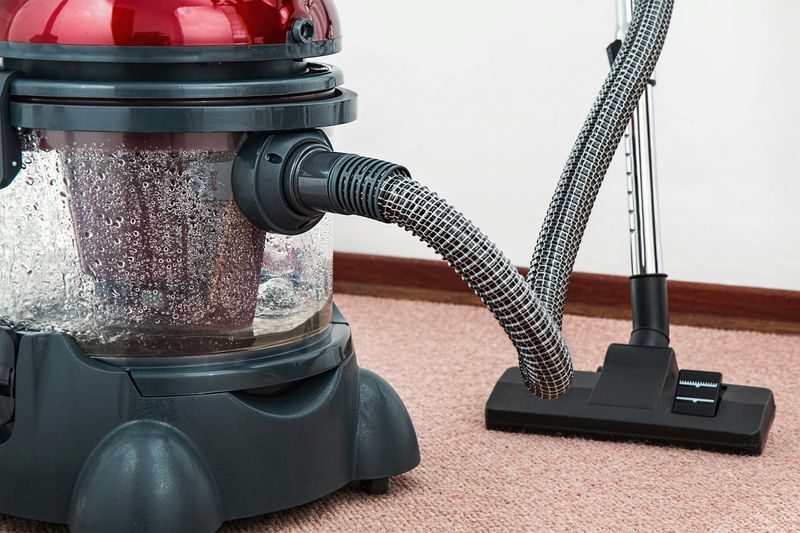
Dust bunnies multiply faster than real rabbits! Regular floor cleaning prevents the buildup of dirt that makes homes look instantly messy, even when everything else is tidy.
Breaking this task into smaller chunks makes it manageable perhaps vacuuming high-traffic areas on Mondays and Thursdays, with a more thorough whole-house cleaning weekly. Robotic vacuums have revolutionized this chore for many households, running while you’re at work or asleep.
If you hate dragging out the vacuum, consider keeping small hand brooms in key areas like the kitchen and bathroom for quick cleanups. The five-minute sweep after dinner catches crumbs before they’re tracked throughout the house, making deeper cleaning sessions much easier when the time comes.
6. Sort Mail Right Away

Paper clutter accumulates faster than almost anything else in our homes. When mail arrives, handle it immediately instead of creating that infamous paper pile that eventually takes over your counter.
Create a simple sorting system with three categories: action required (bills, forms), reading material (magazines, catalogs), and recycling/shredding. Recycle junk mail instantly, file bills in a designated action folder, and place reading materials in their proper spot.
Digital solutions help tremendously with this paper flow. Sign up for paperless billing when possible, and use your phone to snap photos of important documents before recycling them. The five minutes spent managing mail daily saves hours of frustrated searching and sorting through piles later.
7. Clean as You Cook
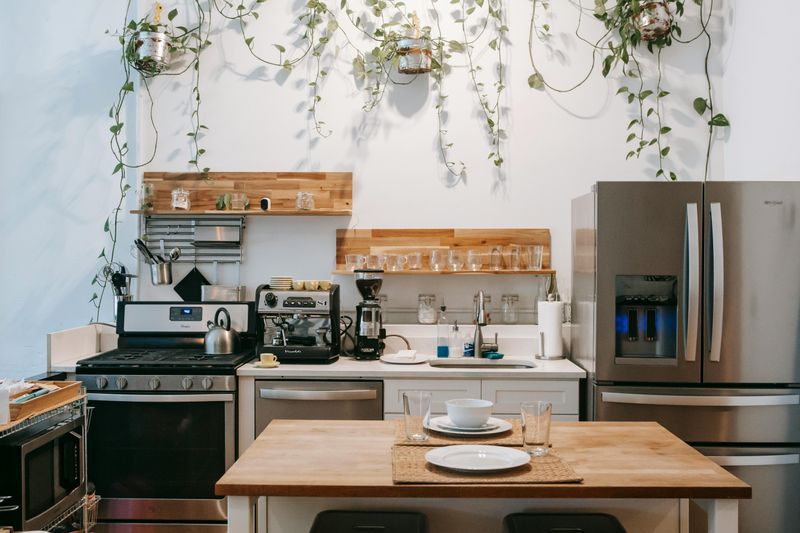
Cooking creates instant kitchen chaos if you don’t tackle messes in real time. The “clean as you cook” approach transforms post-meal cleanup from overwhelming to minimal.
While waiting for water to boil or onions to sauté, wash cutting boards and knives instead of leaving them in the sink. Keep a bowl for food scraps on your counter during prep, making disposal simpler than constantly walking to the trash can.
Fill the sink with soapy water before you begin cooking so you can drop in dirty utensils as you go. Those brief cooking intervals waiting for pasta to cook or sauce to simmer become perfect opportunities to wipe counters or rinse measuring cups. When dinner’s ready, you’ll face just the serving dishes instead of a kitchen disaster zone.
8. Limit Shoes Indoors
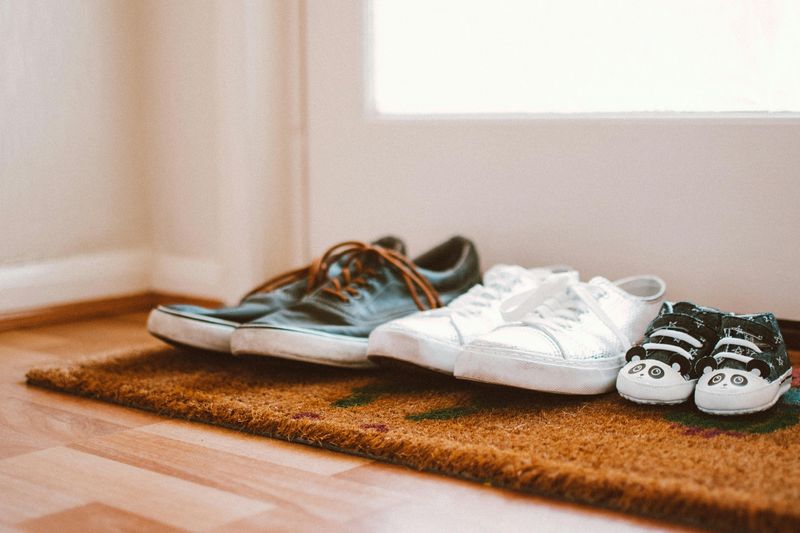
Did you know shoes track in dirt, bacteria, and chemicals from outside? Creating a shoes-off policy dramatically reduces the amount of cleaning your floors need while keeping your home healthier.
Make this rule easier to follow by creating an inviting entryway station with a bench, shoe rack, and perhaps a basket of washable slippers for guests. In winter or rainy seasons, add a boot tray to contain moisture and mud.
Many families implement a middle-ground approach if a strict no-shoes policy feels unwelcoming. Designate “indoor shoes” that never go outside but provide support for those who need it. This compromise maintains the cleanliness benefits while accommodating comfort needs, especially for older family members or those with foot conditions requiring support.
9. Empty Trash Frequently
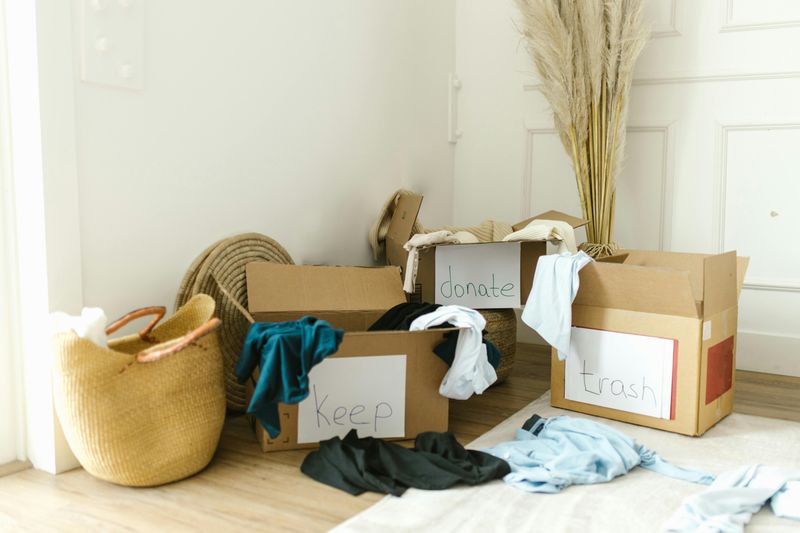
Full trash cans create instant visual clutter and unpleasant odors that make even clean homes feel messy. Emptying trash more frequently than you think necessary prevents overflow and those emergency trips when the bin is suddenly too full.
Kitchen trash typically needs daily attention, while bathroom and office bins might need emptying twice weekly. Line the bottom of bins with newspaper or paper towels to absorb leaks, making cleanup easier if bags tear.
If pets or small children make trash management challenging, consider covered bins with foot pedals or cabinet-enclosed options. For households generating minimal waste, smaller bins encourage more frequent emptying while taking up less space a win-win for apartment dwellers or minimalists trying to reduce their environmental footprint.
10. Assign Chore Roles
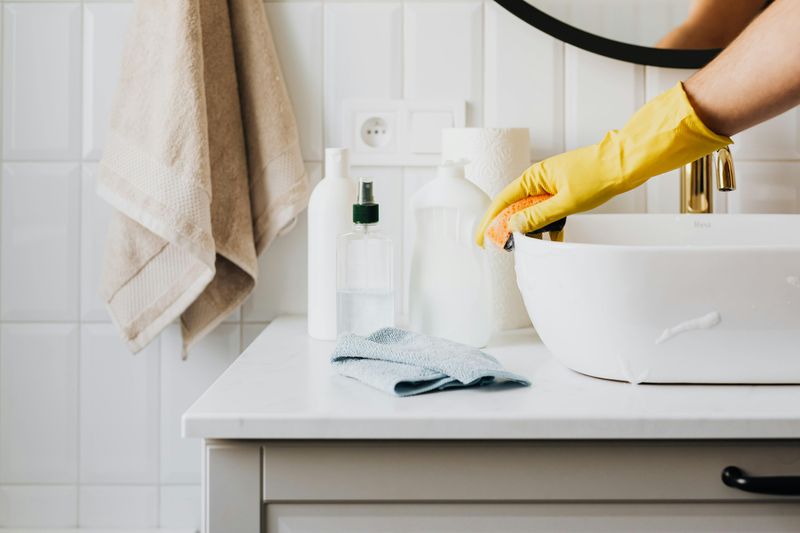
When everyone thinks “someone else will do it,” nothing gets done. Clear chore assignments prevent resentment while ensuring all household tasks are covered without constant negotiation.
Create a simple chart showing who’s responsible for what each week, rotating tasks to prevent boredom and ensure everyone learns different household skills. Even young children can participate with age-appropriate responsibilities like matching clean socks or feeding pets.
The key to successful chore systems is accountability without micromanagement. Rather than nagging, try creating natural consequences perhaps the person assigned to laundry that week gets first choice of weekend activities after completion. This approach works for roommates too, not just families, creating clear expectations that prevent the passive-aggressive notes and tension that often develop in shared living spaces.
11. Tidy Before Bed

A 10-minute evening reset transforms how you feel waking up the next morning. This quick ritual prevents clutter from compounding overnight and gives you the gift of starting each day in a relatively organized space.
Focus on gathering items that don’t belong in common areas and returning them to their proper rooms. Fluff pillows, fold throw blankets, and clear coffee tables of dishes or random items that accumulated throughout the day.
Many find this habit particularly beneficial for mental health the physical act of putting the house in order helps signal to your brain that the day is complete. Families can make this a team effort with a “beat the song” challenge, where everyone hustles to tidy as much as possible before a favorite 3-minute song ends, making the process playful rather than feeling like a chore.
12. Wipe Counters Nightly
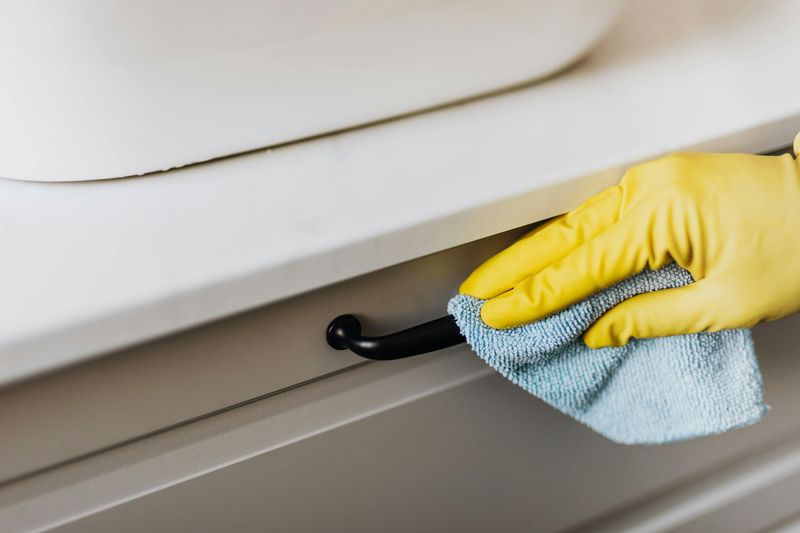
Crumbs, coffee rings, and mysterious sticky spots multiply when left overnight. Taking just two minutes before bed to wipe down kitchen and bathroom counters prevents buildup that requires serious scrubbing later.
Keep disinfecting wipes or a spray bottle with cleaning solution handy in each room for quick access. This nightly ritual helps you catch small messes before they become stubborn stains or attract unwanted critters.
Many families turn this into the final kitchen checkpoint before lights out. While wiping, you’ll often notice other small tasks that need attention like putting away a forgotten snack or washing that last coffee mug preventing these items from becoming part of tomorrow’s bigger cleanup.
13. Wash Dishes After Meals

Nothing attracts pests or creates kitchen chaos faster than dirty dishes piling up. Implementing a simple ‘wash as you go’ system prevents the dreaded mountain of crusty plates and overwhelming cleanup sessions.
If you have a dishwasher, rinse dishes immediately and load them directly instead of placing them in the sink. For hand-washing households, tackle them right after eating while food residue is still soft and easier to remove.
This habit particularly shines during busy weeknights when energy is low. Waking up to a clean kitchen sets a positive tone for your morning routine instead of facing yesterday’s mess alongside your coffee.






